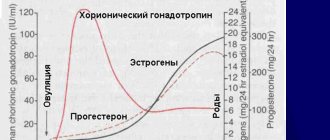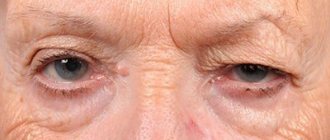Some people are familiar with the feeling of fainting, which is characterized by loss of consciousness. The types of fainting depend on the causes of its occurrence. The symptoms are similar in many cases. It should be noted that syncope is common during pregnancy, in children, during illness, and especially at times of hunger (hunger fainting). Treatment takes into account the characteristics and causes of the condition. Next, we will consider the causes, symptoms and how long it takes for this condition to occur after fasting.
What is a hungry faint?
Hunger faint is a loss of consciousness for a short period of time, occurring due to lack of blood circulation in the brain. Simply put, due to a deficiency of nutrients supplied from outside and oxygen starvation (so-called hypoxia).
The causes and symptoms of this condition may vary. And the problem of hungry fainting usually affects women who are chasing an ideal figure and are on a diet.
Development mechanism
Slightly different in each case. For example:
- in case of fainting caused by heart rhythm disturbances (certain types of arrhythmias), there is less blood in the cerebral vessels, since “incorrect” heart contractions pump a smaller volume;
- with orthostatic fainting, which develops when a person stands up abruptly, the smaller volume of blood is due to a change in body position to which the vessels have not yet had time to adapt;
- with fear or anxiety, a person begins to breathe more often, which causes a decrease in carbon dioxide pressure in his blood; because of this, the brain vessels dilate;
- Abdominal pain is also a cause of loss of consciousness. In this case, the brain vessels are less filled with blood due to excessive stimulation of the vagus nerve.
How to help the victim
At the sight of a person fainting from hunger, many panic, however, helping him is not so difficult. If the situation allows, it is necessary to make every effort to prevent fainting from occurring. When observing the first symptoms in a patient, it is important to immediately place him horizontally.
Even if you lose consciousness in this position, the risk of injury from a fall will be eliminated. Allow the person to lie down and recover as long as necessary.
If fainting occurs, try to place the victim on something flat. Make sure that your legs are elevated, then the blood will begin to flow to the brain again. The head should be turned to the side to prevent the tongue from retracting.
Be sure to free your neck to improve oxygen supply and unfasten your belt . Ammonia and irrigation with cool water help well. You can rub the temple area with cologne or alcohol. At the end of the hungry faint, give the patient some water and feed him well. To quickly bring your blood pressure back to normal, you can use sweet tea.
If you personally feel imminent loss of consciousness, try to calm down. Be sure to sit down and breathe deeply. Often, with such behavior, the condition quickly normalizes.
Causes
Doctors identify several causes of hungry fainting. Here are the most typical of them:
- Improper and unbalanced diet are the main causes of hungry fainting. For example, it occurs when eating one product (most often fruits or fruit juices). If the correct ratio of proteins, fats and carbohydrates is not maintained, the body will not be able to store energy. Insufficient supply of energy and nutrients to the brain are the main causes of hungry fainting. In addition, this type of nutrition depletes nerve cells.
- Decreased cardiac output (angina attacks, cardiac arrhythmias, aortic stenosis).
- Defects in the nervous regulation of capillaries (rapid changes in body position).
- Hypoxia.
- Decreased blood pressure when the body does not adapt to the rapid change in blood flow through the capillaries.
- Diseases leading to heart rhythm disturbances. The human body feels oxygen deficiency, which provokes fainting.
- Dilatation of muscle blood vessels as a result of physical activity.
- A decrease in the amount of circulating blood, which is possible with blood loss or dehydration (diarrhea, excessive urination, sweating).
- When swallowing food, coughing or urinating, which indicates a dysfunction of organs in these systems.
- Hyperventilation of the lungs with anemia, low blood sugar or carbon dioxide.
- Micro-strokes in elderly people due to decreased blood supply to certain segments of the brain.
- Dehydration.
- Diabetes.
- Parkinson's disease.
- Vascular disorders in the extremities.
- Medicines that affect blood pressure.
- Brain hemorrhages.
- Migraine-like conditions.
- Pre-stroke conditions.
- Heart rhythm abnormality: either fast or slow.
- Aortic stenosis (dysfunction of the heart valves).
- High pressure in the arteries or capillaries.
- Cardiomyopathy.
- Aortic dissection.
- Epileptic seizures, which are associated with the functioning of the brain.
Physiological causes of loss of consciousness from hunger
What causes lack of oxygen and impaired consciousness due to insufficient nutrition? Most often, a person loses consciousness due to a lack of glucose in the blood. Prolonged fasting leads to a drop in sugar levels, which causes hypoxia of the central nervous system. In addition, when there is a lack of food, waste and toxins enter the blood. Once in the brain, these harmful substances cause loss of consciousness.
Most often, syncope occurs due to a lack of nutrients in the body when a person does not have enough food. But there are other reasons for hungry fainting:
- Often this condition is observed in people who are on a diet with a monotonous diet (for example, they eat only dairy products or fruit juices). This leads to an unbalanced diet, and the body begins to draw missing substances from internal resources. As a result, brain cells experience hypoxia.
- A person may eat adequately, but often experience stressful situations or experience increased physical activity. This requires additional energy expenditure, the body begins to intensively consume kilocalories. All systems and organs have to work with increased load to provide the brain with oxygen. However, this is not always possible, and then the central nervous system turns off and fainting occurs.
- Irregular eating, when a person eats dry food or takes long breaks between meals, can also lead to temporary loss of consciousness. In this case, a discrepancy arises between the intake of calories, carbohydrates, fats and the body’s energy expenditure.
- In diseases of the gastrointestinal tract, the absorption of nutrients is impaired, which can cause loss of consciousness from hunger, even if a person does not deny himself food.
- Systematic abuse of sweet carbonated drinks can cause fainting. Water with gas and sweeteners leaches beneficial microelements from the body, and this leads to a lack of nutrients and loss of consciousness.
- Anorexia nervosa often causes fainting from lack of food. With this disease, appetite is sharply reduced, and the patient consumes very little food for a long time.
Sometimes a person loses consciousness by abruptly changing body position, for example when standing up. This can also be a type of hungry fainting if the body does not receive enough nutrients.
Stages
Based on the severity of fainting conditions, it is customary to distinguish three main conditions:
- Weak degree, which is characterized by the manifestation of primary signs of fainting, such as pale skin, dizziness, blue tint to the lips, weakness, lack of coherent speech and coordination of actions.
- The stage of fainting or severe degree is accompanied by a decrease in heartbeat and breathing, in addition, the person feels everything around, but cannot react to it. Fainting lasts several seconds.
- The final degree is super-strong, in which there is no breathing or pulse, the skin becomes an unnatural blue color, the person is completely separated from the outside world and is deprived of memories of things that happened. This condition is called imaginary death.
The final stage of all stages is the post-fainting stage, which is characterized by the rehabilitation of brain function and the activation of the sympathetic system, which increases heart rate and breathing.
Symptoms of loss of consciousness during hunger
Syncope from lack of food usually does not last long. In this case, the following symptoms of hungry fainting are observed:
- Weakness gradually increases, which turns into loss of consciousness.
- A person stops reacting to the environment and stimuli; he has no reflexes.
- Muscle tone is sharply reduced.
- Blood pressure drops and heart rate decreases. A weak pulse is heard.
- Involuntary release of urine and feces is possible.
This state usually lasts no more than 20 seconds; a person completely recovers from fainting within 4 to 5 minutes.
Symptoms of hungry fainting
Refusal to eat or chronic malnutrition can cause hungry fainting over time. Symptoms of the phenomenon rarely occur immediately. They appear and gradually increase in the following sequence:
- general weakness throughout the body;
- dizziness;
- blurred vision;
- slight nausea is possible;
- noise in ears;
- strength is suddenly lost;
- wobbly legs, it becomes difficult to walk;
- severe drowsiness and yawning;
- sometimes sweating increases and the skin turns blue.
After loss of consciousness, the pupils slowly dilate and do not respond to light. Symptoms may last for several seconds. If after fainting a person does not regain consciousness for five minutes or more, this may indicate serious complications. In such situations, you should call an ambulance.
What to do if symptoms appear?
- When the first signs of hungry fainting appear in an adult or child, you need to sit down or take a horizontal position. The occurrence of dizziness or weakness is a signal of insufficient oxygen supply to the brain. It is necessary to stop all physical and mental activity.
- A sudden movement can cause a fall, so you should move (if, say, you need to reach a chair) very carefully and slowly. If it is not possible to sit down or lie down (for example, on the street), you need to squat down and lean on some object (a tree, the wall of a house).
- During darkening of the eyes, the blood vessels in the brain sharply narrow, and blood supply is almost absent. In this case, you need to make sure that the head is at a lower level than the body. You can lean forward, get on all fours and lower your head to the floor. Another option: lying on your back, raise your legs higher, using a pillow, cushion or clothing.
Presyncope
Usually a person does not lose consciousness suddenly. A few minutes before syncope, your health sharply worsens, and the first signs of hungry fainting occur:
- dizziness;
- cold sweat;
- nausea;
- fog;
- weakness;
- sensation of noise and ringing in the ears.
These symptoms indicate that the brain does not have enough oxygen, and soon the body will “turn off” the central nervous system. Then the person develops black spots and blurred vision, and the pupil stops responding to light. The skin turns pale and becomes covered in sweat. Approximately 20 seconds after visual disturbances, hungry fainting begins.
How many days does it take to faint from hunger?
Patients practicing therapeutic fasting are interested in how quickly fainting occurs when they completely refuse food. It is difficult to answer this question unambiguously, since the capabilities of the human body are individual. Some people can go several days without eating without experiencing syncope. Others lose consciousness even with a slight disruption of their usual diet.
Here a lot depends on the person’s physique. Thin people have low fat reserves. They experience hungry fainting after 1 day of complete refusal to eat. Dense and overweight people may lose consciousness on the third or fourth day of fasting, since at first the body will draw nutrients from its own reserves.
Comment from user Evgeniy:
Who is how prepared? If you are prepared for fasting, then not soon. I haven't been dumped for 40 days. Drank water. There is dry fasting, it lasts up to 11 days, but there any contact with water is prohibited. In the first days (up to about a week), fat reserves are consumed quickly, and then the feeling of hunger disappears and the body switches to endogenous nutrition, using fat reserves very sparingly and producing from resources everything necessary for life.











